
Look, Say, Cover, Write, Check Template Spelling Practice Worksheet KS1/KS2 Primary English
Look, say, cover, write, check is a method of learning spelling, where children: Study a word Say it aloud a few times Cover it up with a piece of paper or their hand Write the spelling next to the original word Check their version to see if they got it right. How is L ook, Say, Cover, Write, Check used in elementary school?
The Best of Teacher Entrepreneurs II Look. SAY. Cover. Write. Check!
The look, say, cover, write, check method is a process children can use to help them learn how to spell new words. The process of this method is as follows: First look at the chosen word. Say the word out loud a few times. Cover the word up again. Attempt to write the word out themselves.

Look write cover check template Look Say Cover Write Check Template PDF Form — Fill Out and
Use this fantastic spelling poster to teach and recap the key spelling strategy of look, say, cover, write and check. This strategy can help your class to learn to spell a variety of words, including common exception words. Display the poster in your classroom to remind pupils how to use this approach when working independently.
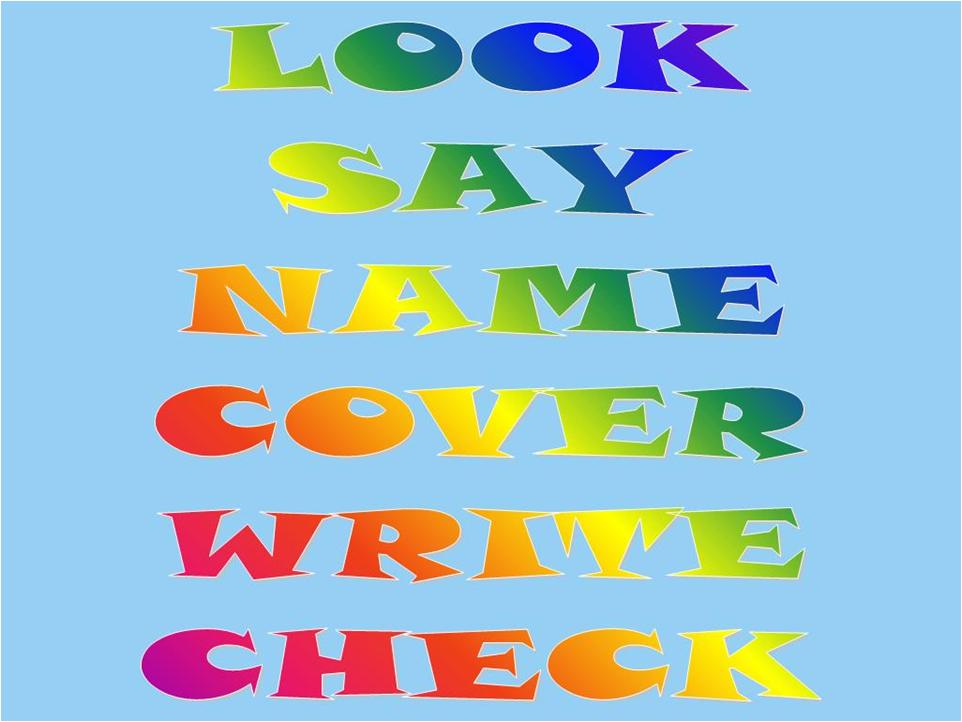
Look Say Name Cover Write Check MargD Teaching Posters
Look Say Cover Write Check. Created by. Sullivan's Simply Social Studies. This product is a Look, Say, Cover, Write, Check sheet for independent spelling practice. The benefit of this style is that there is a "built in" cover sheet. No need for folders or extra paper to cover up spelling words when the student is writing from memory.

Look Cover Say Write Check YouTube
What is look, say, cover, write, check?. Look, say, cover, write, check is a great technique for primary school students to use at home when practising Key Stage 1 and Key Stage 2 spelling lists.. Teachers can use this method to help students overcome any spelling errors they may have made in writing work or spelling and grammar activities.

Look, Cover, Say, Write, Check Spelling Strategy — Teachie Tings
The look, say, cover, write and check method is an effective way to teach spellings. This is because it allows kids to have a go at writing a word from memory, checking to see if they got it right, and then correcting it if they haven't. With this fantastic look, cover, write and check template, you can offer tailored spelling support to your key stage 2 pupils. Once you've downloaded this.

Learning to Spell PLD Promoting Literacy Development Spelling strategies, Learn to spell
Look Say Cover Write Check. Created by. Sullivan's Simply Social Studies. This product is a Look, Say, Cover, Write, Check sheet for independent spelling practice. The benefit of this style is that there is a "built in" cover sheet. No need for folders or extra paper to cover up spelling words when the student is writing from memory.

Die besten 25+ Look cover write check Ideen auf Pinterest Flugbegleiterin packen, Trash pack
Look, Cover, Say, Write, Check has had a bad rap over the past few years, but it is mainly due to the implementation of the strategy, rather than the strategy itself. Over time, the strategy has been reduced to its simplest form: the idea that students learn words by memorizing. Well, we know that children just don't learn how to read that way!
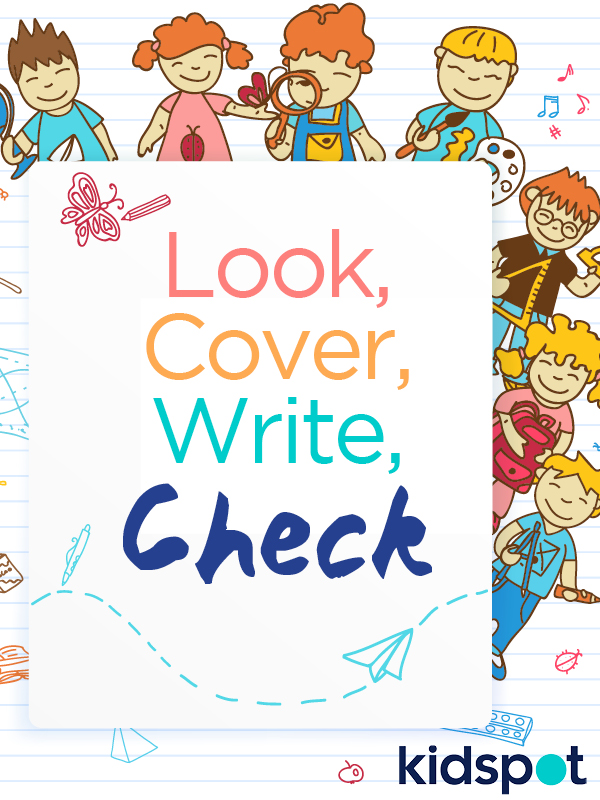
Look Say Cover Write And Check School Age Kidspot NZ
Look, say, cover, write, check is a method of learning spelling, where children: Study a word. Say it aloud a few times. Cover it up with a piece of paper or their hand. Write the spelling next to the original word. Check their version to see if they got it right.
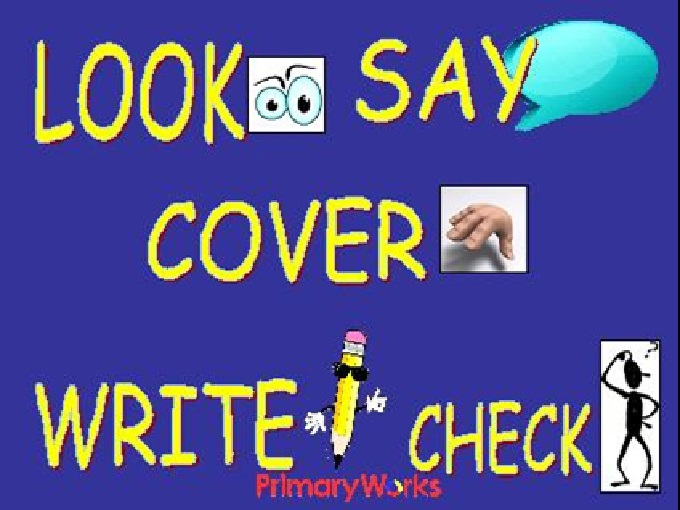
This LSCWC Powerpoint has ss and ment endings but can be adapted for any spelling pattern.
What is look, say, cover, write, check?. Look, say, cover, write, check is a great technique for primary school students to use at home when practising Key Stage 1 and Key Stage 2 spelling lists.. Teachers can use this method to help students overcome any spelling errors they may have made in writing work or spelling and grammar activities.

Look, Cover, Write and Check spelling words list
Rohan used a technique called: look, say, cover, write, check, which essentially meant that you look over the content, cover over it, you say it out loud, you write it down and then.

Look, say, cover, write, check YouTube
Look, Cover, Write, Check A brilliant version of the spelling site where you can test yourself on high frequency words to test your knowledge. 5-11 year olds Pupils Spelling City An online spelling program where you can enter the spellings you have to learn. The program can help you learn them and then you can test yourself.
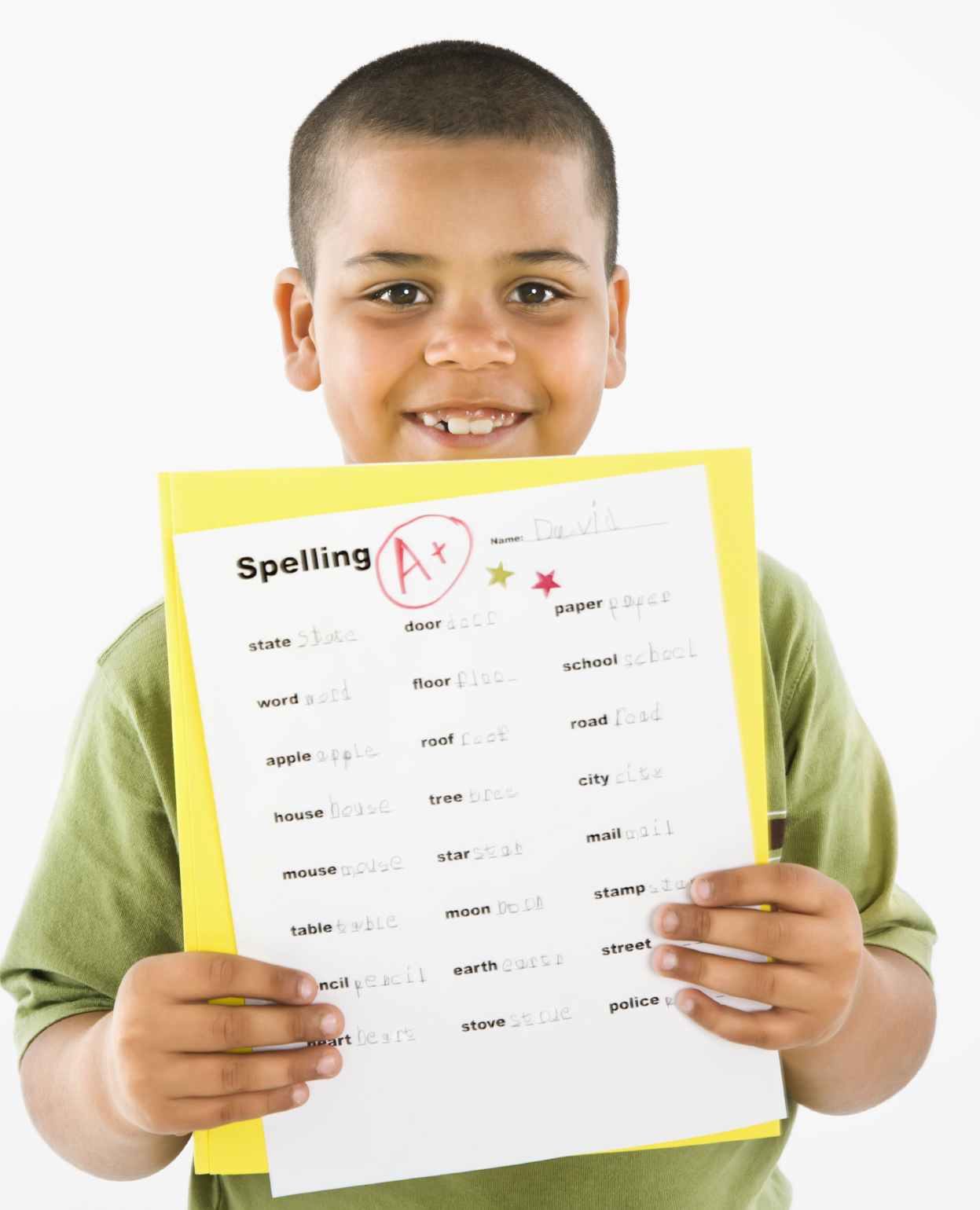
Look, Cover, Write, Check explained for primaryschool parents TheSchoolRun
Look, Cover, Write, Check A great way to practise phonics, spelling patterns or the common exception words listed in the UK English Curriculum. This game does not store or share any spelling / personal data. Choose a year group frrom the circle buttons. Choose a tab (spelling patterns or common exception words)

The 25+ best Look cover write check ideas on Pinterest Sept 20 sign, Amazing food rome and
Look, say, cover, write, check is a great technique for primary school students to use at home when practising Key Stage 1 and Key Stage 2 spelling lists. Teachers can use this method to help students overcome any spelling errors they may have made in writing work or spelling and grammar activities. How do we use look, say, cover, write, check?
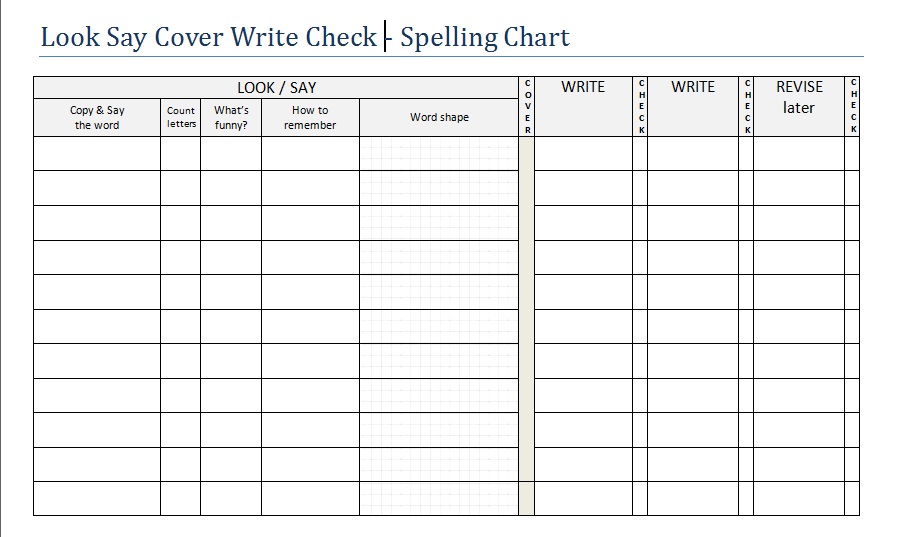
The Spelling Blog Look Say Cover Write Check Template
Playing the game - Instructions: Read the word on the toilet lid. Start to spell that word by dragging paper from the top shelf. The lid will hide the word as soon as you begin. When you think you're ready press the flush button to check your spelling. If you are correct the toilet will flush and reveal a new word.
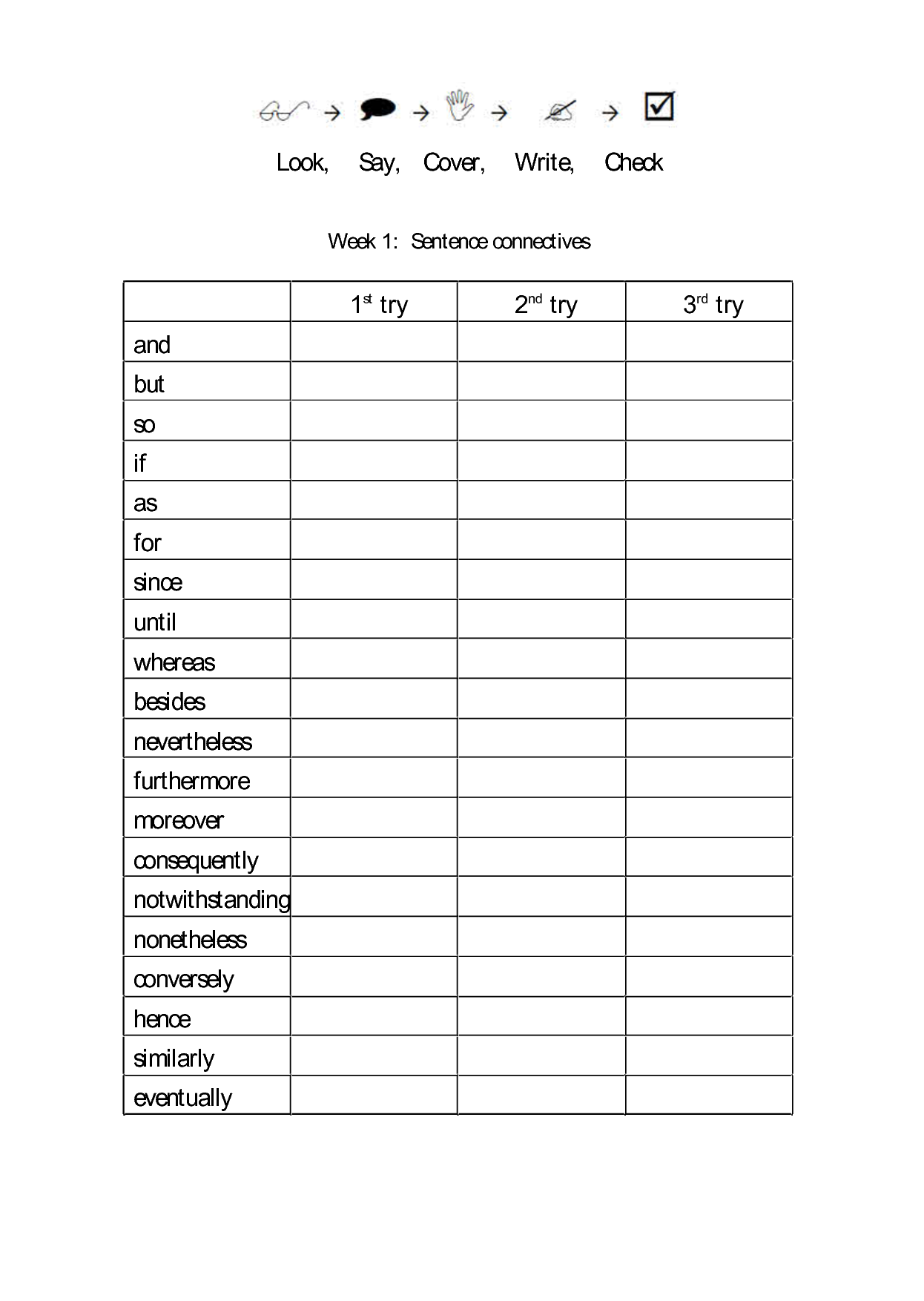
6 Writing Checks Worksheets /
Look, Say, Cover, Write, Check is a strategy used by primary schools to help children learn their spellings. It is a great technique to use when practising at home, but is also used by some primary schools as part of their learning time too. Read our Teacher Wiki to see how it might be used in school.